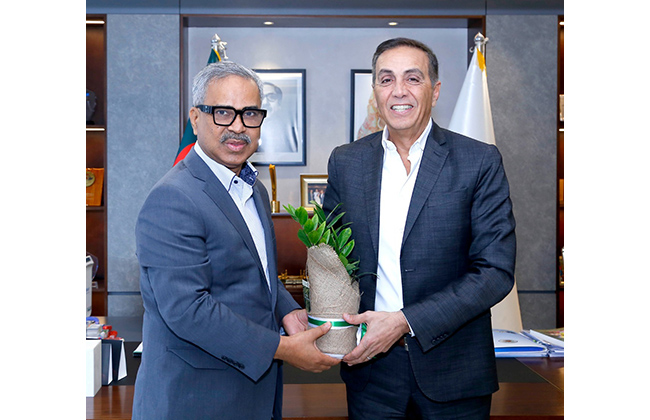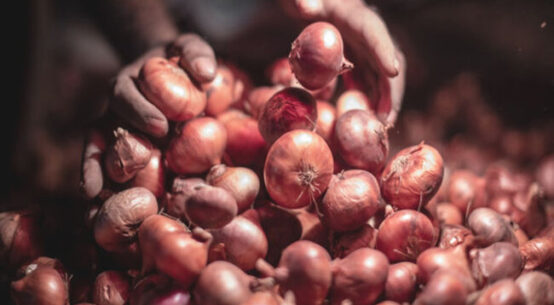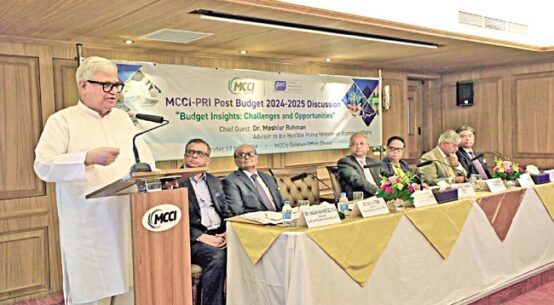
Bangladesh Garments Manufacturers and Exporters Association (BGMEA) and recycled cotton fibre producer Recover are keen to collaborate in developing recycling capacity in the garment sector as nearly 400,000 tonnes of recyclable pre-consumer waste are produced in Bangladesh every year.
It will also help the country to reduce $3 billion of cotton imports, officials said.
Benjamin Joseph Malka, Executive Chairman of Recover, met with BGMEA President Faruque Hassan and shared the idea. The meeting was at the BGMEA office in Dhaka on Wednesday.
Alejandro Raña, Chief Business Development Office at Recover, was also present at the meeting.
Recover is a global producer of low-impact, high-quality recycled cotton fibre and fibre blends.
The meeting discussed possible collaboration between BGMEA and Recover to enhance the capacity of recycling textile waste in Bangladesh and make the country a global hub of recycling.
It expressed high optimism about developing the recycling industry in Bangladesh as 75 percent of apparel products are cotton-based and nearly 400,000 tonnes of recyclable pre-consumer waste are produced in Bangladesh every year, of which only 5 percent are locally recycled.
“Hence, we see a huge prospect in developing the recycling industry in Bangladesh. By capturing and reusing textile waste, we can reduce our cotton imports and export clothing, made of the recycled fibres, worth around $3 billion,” Faruque Hassan said.
Bangladesh’s ready-made garment industry has turned its focus on shifting from the linear economic model to a circular fashion system that could bring not only environmental but financial benefits for Bangladesh, he added.
BGMEA has already entered into partnership with Global Fashion Agenda (GFA), Reverse Resources, and P4G in an initiative called “Circular Fashion Partnership” that aims to achieve a long-term, scalable transition to a circular fashion system.
Ben Malka said Recover had already made huge investment in the recycling industry of Bangladesh and was keen to invest more to develop the recycling capacity in the country.


